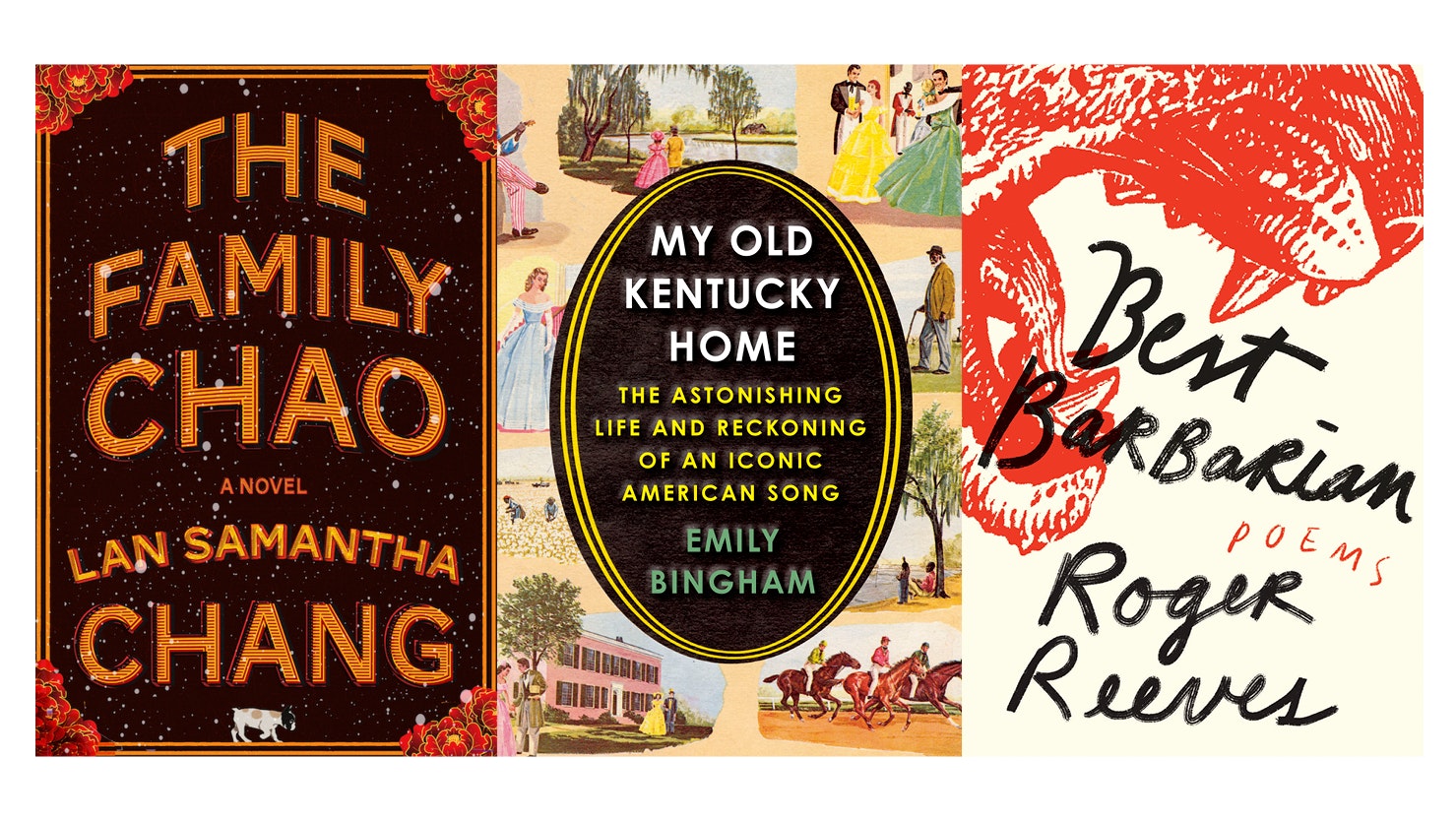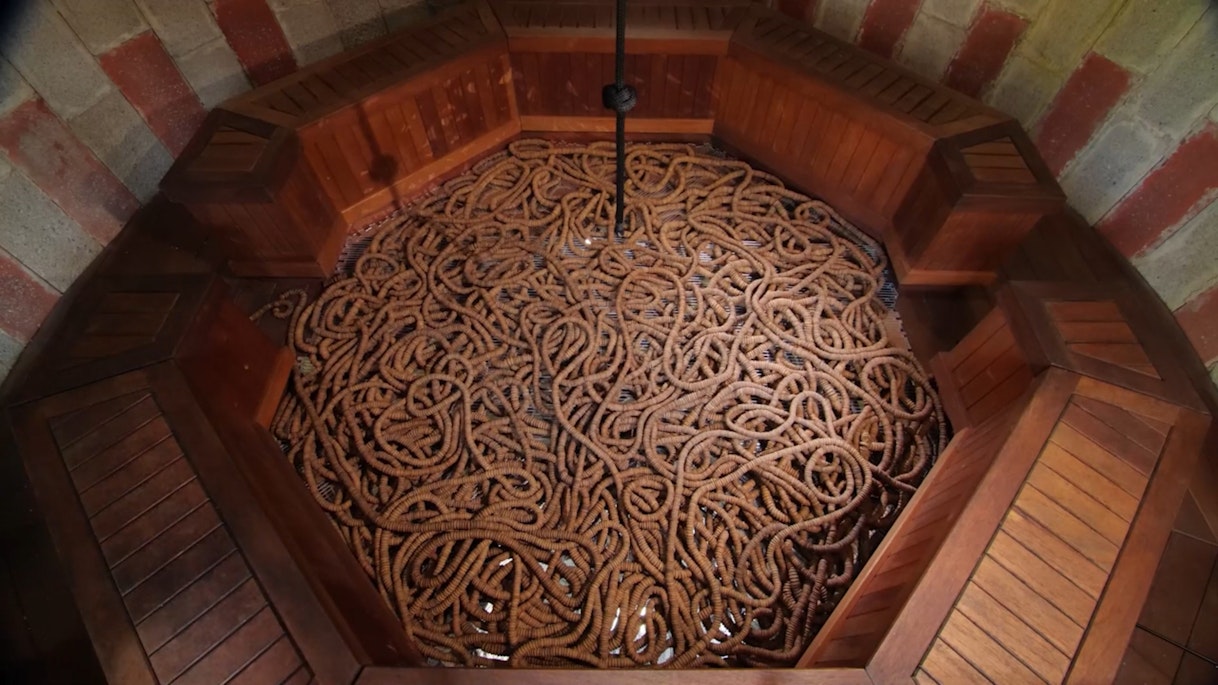Newsmakers | Spring/Summer 2022

The Newsmakers section of Radcliffe Magazine brings the extraordinary achievements of Radcliffe alumnae, faculty, and fellows to our readership. Please tell us about your awards, publications, and other accomplishments by e-mailing magazine@radcliffe.harvard.edu.
Democracy by Petition: Popular Politics in Transformation, 1790–1870 (Harvard University Press, 2021), by Daniel Carpenter RI ’08, was named the winner of the 2022 J. David Greenstone Prize from the Politics and History Section of the American Political Science Association. Carpenter, the faculty director of the social sciences program at Harvard Radcliffe Institute, is the Allie S. Freed Professor of Government in the Faculty of Arts and Sciences.
The American Academy of Arts and Letters awarded the playwright and actor Anna Deavere Smith BI ’92 its 2022 Medal for Spoken Language, which is “given to those who have set the highest standard in the use of language in spoken address,” said the academy in its announcement.
Elizabeth Alexander RI ’08 is among the “titans” on the TIME 100 most influential people of 2022 list. “Through her work as the president of the Andrew W. Mellon Foundation—the largest funder of arts and education in the US—she has put real investment into creating spaces that reflect the country’s rich diversity, and rethinking how we can embrace our cultural narratives, whether through physical monuments or the ways in which we tell our stories,” wrote the playwright Lynn Nottage for the magazine. Also on the list were Timnit Gebru, who participated in the HRI Science Lecture Series on AI earlier this spring, in the innovators group, and Ketanji Brown Jackson, the newest Supreme Court justice and Radcliffe Day 2022 guest, in the leaders group.
The American Academy of Arts & Sciences announced its 2022 elected members, among whom are Carolyn Abbate RI ’07; Eve Blau BI ’92; Suzanne Preston Blier RI ’06; Erica Chenoweth RI ’22; Sandra Chung ’70, PhD ’76; Susan M. Dynarski ’86, MPP ’95; Claudine Gay PhD ’97, RI ’14; Catherine L. Johnson ’91; Hahrie C. Han ’97; Camara Phyllis Jones RI ’20; Marsha A. Moses BI ’99; Mae Ngai RI ’04; Tracy P. Palandjian ’93, MBA ’97; Maharaj K. Pandit RI ’16; Heather Cox Richardson ’84, AM ’87, PhD ’92; and Sijue Wu RI ’03.
Lauren Groff RI ’19 was named the winner of the New Literary Project’s 2022 Joyce Carol Oates Prize, which recognizes midcareer fiction authors with a cash award. “Lauren Groff is an audacious writer of tremendous range and depth,” said Joyce Carol Oates herself. “Wherever her imagination leads, she writes with subtlety and force.”
Monkey Boy (Grove Press, 2021), by Francisco Goldman RI ’19, was a finalist for the 2022 Pulitzer Prize in fiction. Although not strictly biographical, the novel’s protagonist is a writer named Francisco Goldman who shares many identifying details with the real-life journalist and novelist. A recent article in the New York Review (“Shadows across the Decades”) called the work of autofiction a “painful, refractive, beautiful book.”
The Chinese Question: The Gold Rushes and Global Politics (W. W. Norton, 2021), by Mae Ngai RI ’04, won a 2022 Bancroft Prize, widely regarded as one of the most prestigious honors in American history. The “extraordinary book,” said the jury, “brilliantly shows us how much of the white Anglo-American world came to view the Chinese as a racially unassimilable and threatening people.” It is the first book of Asian American history to earn the prize.
Biographers International Organization (BIO) honored Megan Marshall ’77, RI ’07 with its 13th BIO Award, bestowed annually to a writer “who has made major contributions to the advancement of the art and craft of biography,” said the organization.
The National Academy of Sciences honored Mahzarin R. Banaji RI ’05, RI ’08, the Richard Clarke Cabot Professor of Social Ethics at Harvard, with a 2022 Atkinson Prize in Psychological and Cognitive Sciences, awarded for “for her groundbreaking contributions to understanding implicit social cognition,” said the academy on its website. “Her research has helped establish and quantify the role that unconscious processes play in governing human social actions and judgments of others.”
The American Association for the Advancement of Science announced its newly named fellows, among them Debra Fischer RI ’10; Rachel S. Goldman RI ’06; Axel Meyer RI ’18; Lynn Stephen RI ’05; Conevery Bolton Valencius PhD ’98, RI ’17; and Tandy Warnow RI ’04.
The fiction writer Nina McConigley RI ’20 has been named a 2022 National Endowment for the Arts Creative Writing Fellow. The 35 fellows receive a cash award to be used for research, travel, writing, and professional development.
PEN America announced its 2022 Literary Awards, which are juried by award-winning authors, editors, translators, and critics. All that She Carried: The Journey of Ashley’s Sack, a Black Family’s Keepsake (Random House, 2021), by Tiya Miles ’92, RI ’22, won the PEN/John Kenneth Galbraith Award for Nonfiction. A number of Radcliffe-affiliated authors were also recognized for their work: Among the finalists were These Precious Days (Harper, 2021), by Ann Patchett BI ’94, for the PEN/Diamonstein-Spielvogel Award for the Art of the Essay, and Mutiny (Penguin Books, 2021), by Phillip B. Williams RI ’21, for the PEN/Jean Stein Book Award and for the PEN/Voelcker Award for Poetry Collection. Additionally, the longlist included Libertie (Algonquin Books, 2021), by Kaitlyn Greenidge RI ’19, for the PEN Open Book Award, and Swimming Back to Trout River (Simon & Schuster, 2021), by Linda Rui Feng ’97, for the PEN/Hemingway Award for Debut Novel.
Becca Spindel Bassett RIGF ’22, PhD ’22 is among nine graduate students honored by the Association of America Colleges & Universities with the 2022 K. Patricia Cross Future Leaders Award. The award recognizes “leadership and innovation in the areas of equity, community engagement, and teaching and learning.”
At its 2022 Public Humanities Awards, the Mississippi Humanities Council honored W. Ralph Eubanks RI ’22 with the Reflecting Mississippi Award. The council cited “his work as a memoirist and literary scholar that has helped revise our state’s narratives to reflect Mississippi more honestly and accurately.”
The Other Side of Terror: Black Women and the Culture of US Empire (NYU Press, 2021), by Erica R. Edwards RI ’18, was a finalist for a 2022 Prose Award from the Association of American Publishers. The book was Edwards’s fellowship project.

Artist’s illustration of the Local Bubble with star formations occurring on the bubble’s surface. Scientists have now shown how a chain of events beginning 14 million years ago with a set of powerful supernovae led to the creation of the vast bubble, responsible for the formation of all young stars within 500 light-years of the Sun and Earth. Illustration: CfA, Leah Hustak (STScI)
The New York Times At Home profiled Geraldine Brooks RI ’06 and her nearly 300-year-old Martha’s Vineyard home (“Geraldine Brooks, on Martha’s Vineyard”). “I could just hide out here with the boys, and it was what we needed,” Brooks says of her retreat, where she wrote her latest novel, Horse (see Shelf Life).
Ayodele Casel RI ’20 was brought on to choreograph the tap sequences for a highly anticipated Broadway revival of Funny Girl, which stars Beanie Feldstein and opened for previews in March at the August Wilson Theater. The New York Times profiled the master tapper in “Ayodele Casel Is on Tap for ‘Funny Girl.’”
The New York Times Style Magazine ran a feature about the artist Rochelle Feinstein RI ’13 on the eve of her multi-city exhibition You Again. “It’s difficult to summarize Feinstein’s output, and that’s no accident,” says Rose Courteau in “Rochelle Feinstein Makes Work That Is Purposefully Hard to Define.”
In the Atlantic article “André Leon Talley Defined Style on His Own Terms,” Tanisha Ford RI ’19 explained the far-reaching influence and legacy of the late Vogue editor.
The same team that brought us the Radcliffe Wave—including João Alves RI ’19 and Alyssa A. Goodman AM ’86, PhD ’89, RI ’17—have made yet another discovery. “Astronomers have long recognized the Local Bubble,’” said “A New Map of the Sun’s Local Bubble,” in the New York Times. “What is new, said Alyssa Goodman, a member of the team also from the Harvard-Smithsonian Center for Astrophysics, is the observation that all local star forming-regions lie on the Local Bubble’s surface.” The discovery first appeared in “Star Formation Near the Sun Is Driven by Expansion of the Local Bubble,” in the journal Nature.
Sharon Marcus RI ’18, the Orlando Harriman Professor of English and Comparative Literature at Columbia University and author of The Drama of Celebrity (Princeton University Press, 2019), provided her insight to the Washington Post article “You’re Not Imagining It: This Is Why Celebrity Divorce Announcements Have Gotten So Aggressively Nice,” which examined the “joint statement” trend in public splits. “Celebrities give the public a way to debate and work through issues that concern us,” said Marcus. “We’re concerned about our relationships as parents, as partners. We use celebrities to talk about this stuff without having to talk about ourselves.”
In the article “The Best Novels about Surviving Inconsolable Heartbreak,” which appeared on Shepherd.com, the novelist Julia Glass RI ’05 shared her favorite five books about loss, one of which is Year of Wonders: A Novel of the Plague (Viking, 2001), by Geraldine Books RI ’06. Glass is the author of the National Book Award–winning Three Junes (Pantheon Books, 2002), about which she said, “I wrote this book after enduring, in one year, divorce, the loss of my only sibling to suicide, and cancer treatment. I realized that all the most powerful fiction is about how we survive devastating grief and rediscover hope.” Glass’s next novel, Vigil Harbor (Pantheon Books, 2022), came out in early May.
The novelist Kaitlyn Greenidge RI ’19 considered the marriage narrative in a guest essay for the New York Times titled “What Does Marriage Ask Us to Give Up?”
The onetime Radcliffe Research Partner Rebecca Panovka ’16 recently launched the Drift, a magazine of culture and politics. The publication, which the New York Times called “the lit mag of the moment” and publishes three times a year, made its debut amid the COVID pandemic. The article “A Pool of One’s Own” reviews group biographies focusing on female friendship, including The Equivalents: A Story of Art, Female Friendship, and Liberation in the 1960s (Knopf Doubleday, 2020), in which Maggie Doherty PhD ’15 centers four artists who came through the Radcliffe Institute in its early fellowship days. Panovka edits the magazine with her classmate Kiara Barrow ’16.
In the Washington Post article “In the 1950s, Their Lonely Battles on Rights and the Environment Heralded Changes to Come,” former Radcliffe Dean Lizabeth Cohen RI ’02 reviews James R. Gaines’s The Fifties: An Underground History, which proposes an alternative view of the 1950s as the decade that launched the social activism of the 1960s and 1970s.
“A New Map of the Sun’s Local Bubble,” which appeared in the New York Times, details the discovery that could explain how all nearby star formation began. This discovery, centered around what’s called the Local Bubble, was made by a team led by Catherine Zucker—a onetime Harvard graduate student who is now at the Space Telescope Science Institute, in Baltimore—and that includes João Alves RI ’19, an astrophysicist at the University of Vienna, and Alyssa A. Goodman RI ’17, the Robert Wheeler Willson Professor of Applied Astronomy in the Harvard Faculty of Arts and Sciences and former codirector of the science program at Harvard Radcliffe Institute. This is the same team that brought us the Radcliffe Wave.
An excerpt from a work in progress by Margaret Morganroth Gullette ’62, PhD ’75, BI ’87, “It Was Eldercide,” was published by the American Society on Aging. An earlier version, which initially appeared in Dissent, is included in The Long Year: A 2020 Reader (Public Books, 2022), edited by Thomas J. Sugrue and Caitlin Zaloom. Gullette’s forthcoming book is “American Eldercide: How It Happened, How to Prevent It.”

Books by Emily Bingham, Lan Samantha Chan, and Roger Reeves
Horse (Viking, 2022) is the latest novel by Geraldine Brooks RI ’06, and it takes as its starting point a racing horse named Lexington in the antebellum South before delving into a study of race in America since the 1850s. “Brooks’s chronological and cross-disciplinary leaps are thrilling,” said a review in the New York Times.
The latest book about what Ibram X. Kendi RI ’21 terms as antiracism is How to Raise an Antiracist (One World, 2022), which the Los Angeles Times selected as the June title for its book club. Kendi is the founding director of the Boston University Center for Antiracist Research.
In the memoir Little Brother (Sarabande Books, 2022), Sallie Bingham ’58 meditates on her youngest sibling, who died tragically at the age of 22. “Fans of women’s history and devotees of Southern family sagas will enjoy taking this detour into nonfiction territory,” said Library Journal in a review.
Julia Glass RI ’05 has published her seventh novel, Vigil Harbor (Pantheon, 2022), which takes place in the titular (and fictional) New England town in the near future. “Glass, who won the National Book Award for her first novel, Three Junes, is a masterful builder of fictional people, an expert at charting the architecture of entire lives,” said a New York Times review.
The historian and Louisville native Emily Bingham ’87 has published My Old Kentucky Home: The Astonishing Life and Reckoning of an Iconic American Song (Knopf, 2022), which offers an in-depth look at the history of the Stephen Foster–penned Kentucky state song. “Bingham has given us an account that is both riveting and thorough, taking us across a century of spinout marketing campaigns, protests, and versions that emerged from Foster’s lyrics,” said a review in the Washington Post. “Emily Bingham’s new book is a work toward truth and reconciliation.” In advance praise, the singer and songwriter Roseanne Cash said, “I was taken aback by how the song and its history, and Foster’s own history, are so much a part of our ongoing story.” The author of three previous books, Bingham is a visiting honors faculty fellow at Bellarmine University.
Roger Reeves RI ’22 has published his second poetry collection, Best Barbarian (W.W. Norton, 2022), which puts a new spin on classics of the Western literary canon. “Reeves isn’t asking himself what to take from this canon or what to leave behind,” said the New York Times review “Moving from Elegy to Ecstasy, a Poet Pushes against the Canon.” “Instead, he expands literary tradition so that new political ideas, self-revelation, and play can thrive.”
Legacy of Violence: A History of the British Empire (Knopf, 2022), by Caroline Elkins AM ’96, PhD ’01, RI ’04, RI ’13, examines the mechanisms through which Britain maintained its sprawling 20th century empire across four continents. In a starred review, Kirkus Reviews called the book a “top-shelf history offering tremendous acknowledgement of past systemic abuses.” Elkins worked on this book during her return to the Radcliffe Fellowship Program as an ACLS Frederick Burkhart Fellow; she spent her initial fellowship year working on her Pulitzer Prize–winning Imperial Reckoning: The Untold Story of Britain’s Gulag in Kenya (Henry Holt, 2005).
Meghan O’Rourke RI ’15 has published The Invisible Kingdom: Reimagining Chronic Illness (Riverhead Books, 2022). She researched the book—born from her New Yorker article “What’s Wrong with Me?”—during her fellowship year, consulting medical historians and researchers on the topic of chronic illness, of which she herself is a sufferer. In a roundup of outstanding nonfiction books, Esquire called the book an “elegant fusion of memoir, reporting, and cultural history” that is “at once a rigorous work of scholarship and a radical act of empathy.”
Sarah Manguso ’96 has published her first novel, Very Cold People (Hogarth, 2022), a coming-of-age story told from the perspective of a tween named Ruth. A review in the New York Review of Books said, “Manguso captures the bewilderment of childhood in Ruth’s flat observations about situations she doesn’t fully understand, supplemented by feral imaginings.” (See the Radcliffe Magazine review.)
The Family Chao (W. W. Norton, 2022) is the latest novel from Lan Samantha Chang MPA ’91, RI ’01. The story, inspired by Dostoyevsky’s The Brothers Karamazov, takes as its jumping-off point succession of a popular Chinese restaurant in Wisconsin. “Chang’s prose moves with the unfussy ease of a shark through water—for the longest time you are just enjoying your swim, soaking up the story, said a review of the novel in the Guardian. “Only midway through the book does it occur to you that a master hunter is at work: a writer cutting through the darker depths of what it means to be treated as an outsider in America.” Chang directs the Iowa Writers’ Workshop.
Gish Jen ’77, BI ’87, RI ’02 has published a new short story collection, Thank You, Mr. Nixon (Knopf, 2022). “Thank You, Mr. Nixon is an exceptional collection, written with intelligence, wit and grace—it’s one of the best books of Jen’s remarkable career,” said an NPR review. The story collection was included in an OprahDaily.com round-up of 10 books to read during Asian American and Pacific Islander Heritage Month. Meanwhile, Esquire included her most recent novel, The Resisters (Knopf, 2020), in its list “The 50 Best Sci-Fi Books of All Time.”
Tomiko Brown-Nagin RI ’17—dean of Harvard Radcliffe Institute, Daniel P.S. Paul Professor of Constitutional Law at Harvard Law School, professor of history at the Harvard Faculty of Arts and Sciences, and chair of the Presidential Committee on Harvard and the Legacy of Slavery—has published Civil Rights Queen: Constance Baker Motley and the Struggle for Equality (Pantheon Books, 2022). “Civil Rights Queen is a balanced assessment of a brave and brilliant woman who helped to reconfigure the system before she became a part of it,” said a New York Times review of the “thoughtful biography.” Brown-Nagin worked on the book during her Radcliffe fellowship.

Unraveling Oculus, 2021, by Beth Galston with Ellen Sebring. Performed and filmed in the Bell Silo at the Goldring-Piene Art Farm, in Groton, Massachusetts. (Click to watch on Vimeo.)
Beth Galston BI ’91 has two solo exhibitions this summer. Unraveling Oculus—an immersive installation that layers video taken in a silo, mirrors, and thousands of acorn caps—opened on June 18 at Brattleboro Museum and Art Center, in Vermont, where it will be on view through October 10. On July 15, her installation Ice Forest opens at the Woodshed Gallery at Chesterwood, in Stockbridge, Massachusetts. “The installation will evolve through a process of improvisation during my weeklong residency at Chesterwood,” said Galston in a statement.
Precipitation for an Arid Landscape, an exhibition series by Gala Porras-Kim RI ’20 that was born out of her year at Radcliffe, enjoyed presentations at four galleries in the United States and England. In addition to the exhibition at our own Johnson-Kulukundis Family Gallery, in Byerly Hall—where it’s on view through July 2—installments made their way to Amant, in Brooklyn (in collaboration with KADIST), November 20, 2021–March 17, 2022; the Contemporary Art Museum St. Louis, March 25–July 24, 2022; and Gasworks, in London, January 27–March 27, 2022. Each venue exhibited a unique set of artworks reconsidering the status of historical objects and their lives beyond the collections in which they’re held. In addition to being featured in Artforum (“The Ethics of Dust”), the exhibition was reviewed in the Nation (“The Gods of Gala Porras-Kim”) and the New York Review (“Occasional Residences of the Gods”), and Ocula Magazine published a conversation with the artist (“Gala Porras-Kim: The Afterlives of Museum Objects”). See the video feature about the exhibition in the Johnson-Kulukundis Family Gallery.
In early June, Artnet featured a solo show by Judith Seligson ’72 among its editors’ picks. “She presents hard-edged, geometric abstract paintings and a new hybrid form of painting/3-D sculpture she’s developed over the last seven years,” said the publication. “The exhibition features 50 new works, including paintings just a few inches in size that are something of a feminist statement, demanding to be taken just as seriously as a monumental canvas.” Judith Seligson: The More You Look the More You See is on view at Galerie Mourlot, in New York City, where its run has been extended till August 15.
Rochelle Feinstein RI ’13 enjoyed a six venue international exhibition of her work, titled You Again, which showed simultaneously in galleries in Los Angeles, Miami, New York City, Paris, and Zurich. Each site presented “a selection of historic works alongside newer paintings that address, expand upon, or complicate themes within the earlier examples,” said the participating gallery Bridget Donahue in a press release.
In July, in San Francisco, Lieder Alive! will present the world premiere of a new song cycle by Tarik O’Regan RI ’05, Seen and Unseen, to be sung by the soprano Heidi Moss Erickson accompanied by John Parr on piano. Earlier, in June, the Jacksonville Symphony performed the world premiere of another piece, “Trances.” O’Regan is a composer in residence of the San Francisco-based Philharmonia Baroque Orchestra & Chorale, which later this summer will present a new composition “Ancestor,” created in collaboration with Errollyn Wallen, at the Ryedale Festival, in Northern England; at St. Martin in the Fields, in London; and at the Norfolk Chamber Music Festival, in Connecticut.
Earlier this spring, John Aylward RI ’12 released a new album, Celestial Forms and Stories (New Focus Recordings). Worcester Magazine profiled the composer, who is an associate professor of music at Clark University. “Aylward’s suite is at turns mysterious, iridescent, and daring, and the virtuoso players of Klangforum Wien are alert to every nuance and volatile utterance,” said a review of the album in Gramophone.
Last year, the composer Lisa Bielawa RI ’08 launched a crowdsourced sound project titled BFH Radio - Broadcast from Here. The work combines spoken word, song fragments, and field recordings into “a continuous and evolving soundscape.” Anyone can contribute by leaving a message at the BFH Radio hotline, 1-707-722-BFHR (2347); instructions can be found on Bielawa’s website.

Will-o’-the-Wisp, a film by João Pedro Rodrigues, premiered at this year’s Cannes Directors’ Fortnight.
A new film by João Pedro Rodrigues RI ’15, Will-o’-the-Wisp, premiered at Cannes Directors’ Fortnight. A Variety review deemed the film a “hot, hilarious, queer firefighter fantasia,” saying also “Will-o’-the-Wisp takes aim throughout at the sanitization of sexual expression and political conflict that passes for politesse in the upper classes, a suppression that can flip right back into active homophobia and racism when challenged a little.”
Riveted: The History of Jeans, a PBS American Experience documentary, featured Tanisha Ford RI ’19 talking about denim’s influence in hip hop culture and beyond.
Framing Agnes, a documentary feature by the filmmaker Chase Joynt in collaboration with Kristen Schilt RI ’17, screened at the Sundance Film Festival earlier this year. Schilt is an associate professor and the director of the Center for the Study of Gender and Sexuality and the University of Chicago.
The poet Roger Reeves RI ’22 teamed up with the NYU Skirball String Quartet to present Other Forms of Love, a musical performance and poetry reading at the Goethe-Institut New York earlier this year. The performance brought together Reeves’s new poetry cycle of the same name, commissioned by the Goethe-Institut New York Library, and Joseph Haydn’s The Seven Last Words of Christ.
In August, the Conroe Independent School District, in Texas, will open a new elementary school: Gordon-Reed Elementary. The school is named after Annette Gordon-Reed JD ’84, RI ’12, RI ’13, RI ’14, RI ’16, who is the Charles Warren Professor of American Legal History at Harvard Law School and a Pulitzer Prize winner. Gordon-Reed, who most recently published On Juneteenth (Liveright, 2021) about the national importance of the Texas-born holiday, grew up in Conroe, where she integrated the public schools when she was six years old.
Ibram X. Kendi RI ’21, the antiracist scholar and author who serves as founding director of the Boston University Center for Antiracist Research, appeared on the podcast In the Thick to talk about his latest book, How to Raise an Antiracist (One World, 2022). (See Shelf Life.)
This fall, Nina McConigley RI ’20 will join the creative writing faculty of Colorado State University’s Department of English. The author of the award-winning short story collection Cowboys and East Indians (Curtis Brown, 2015), McConigley has long been an assistant professor of honors specializing in creative writing at the University of Wyoming.
Tracy K. Smith ’94, a Susan S. and Kenneth L. Wallach Professor at Harvard Radcliffe Institute and a Harvard professor of English and of African and African American Studies, was selected as the featured speaker for Harvard Alumni Day 2022, which was held on June 3. Video of the Pulitzer Prize winner and two-time US poet laureate’s appearance is available online.
A writer and the editor of the Yale Review, Meghan O’Rourke RI ’15, appeared on NPR’s Fresh Air to discuss long COVID in the context of American attitudes toward chronic illness. She is the author of the recent book The Invisible Kingdom: Reimagining Chronic Illness (Riverhead Books, 2022), on which she worked during her Radcliffe fellowship. (See Shelf Life.)
NPR’s Weekend Edition hosted Lan Samantha Chang MPA ’91, RI ’01 to talk about her recently published novel, The Family Chao (W. W. Norton, 2022). (See Shelf Life.)
Sharon Weinberger RI ’16 has joined the Wall Street Journal, where she is the national security editor. She previously served as the DC bureau chief for Yahoo News, an executive editor at Foreign Policy, and the national security editor of the Intercept. She has written widely on military science and technology.
The filmmaker Abigail Child ’68, RI ’06 appeared on Episode 81 of The Colleen Gallagher Podcast, where she discussed her most recent film, Origin of the Species, about the manufacture and impact of AI robotics.
Ivelisse Estrada is the senior writer at Harvard Radcliffe Institute and editor of Radcliffe Magazine.







